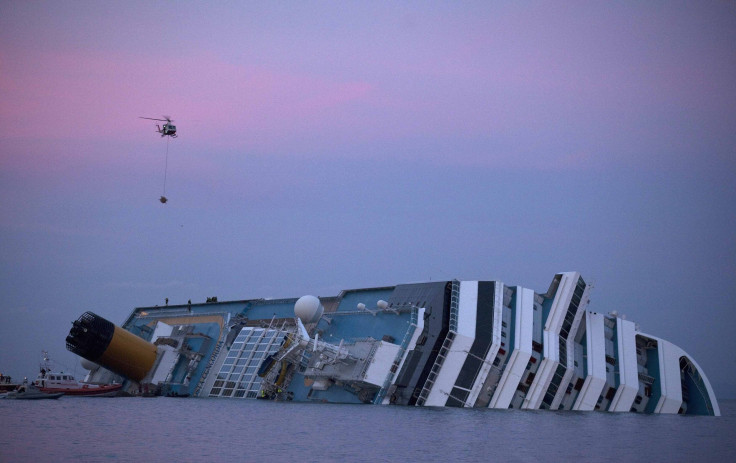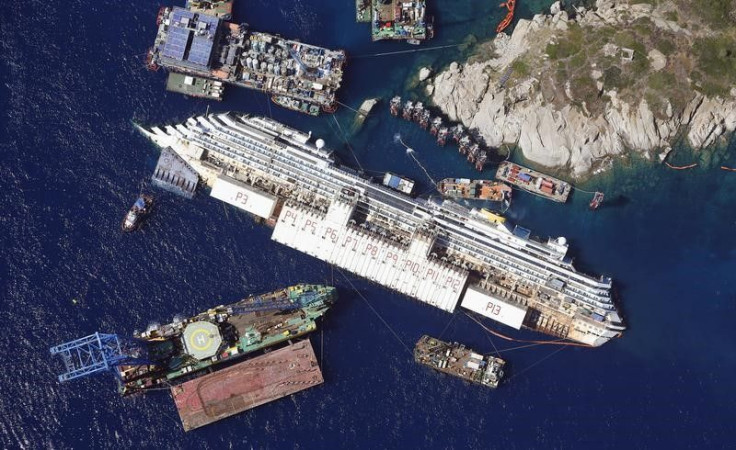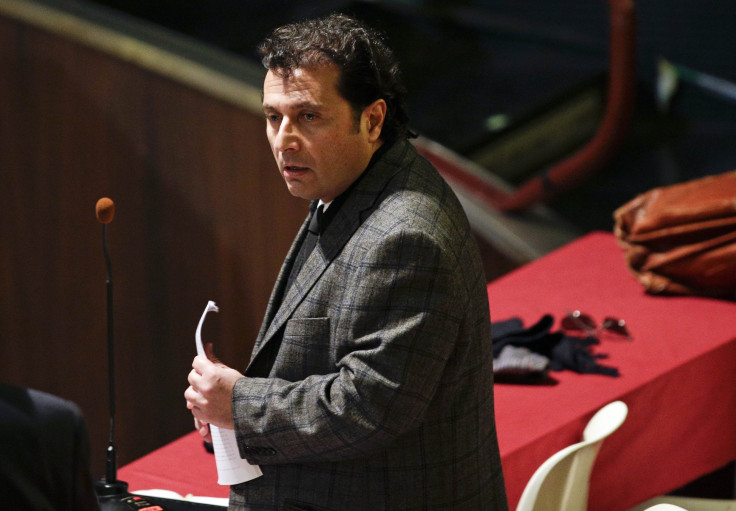Francesco Schettino, Costa Concordia Captain Guilty: 5 Things To Know About His Trial

Francesco Schettino, the captain who was guiding an Italian luxury cruise ship on Jan. 12, 2012, when it ran aground off the southern coast of Italy, leaving 32 people dead, on Wednesday was found guilty of manslaughter and sentenced to 16 years in prison for his role in the ship’s demise. Schettino, 54, was facing more than 26 years in prison on charges of negligence and manslaughter, causing the Costa Concordia's shipwreck and abandoning the ship. Despite the conviction, Schettino will remain free during the obligatory appeals process, which can last multiple years, according to Reuters. Here are five key facts about his trial, which started in July 2013.
His lawyers portrayed him as a hero during the trial Schettino's lawyers presented their client in the most positive light in attempts to the Italian court, arguing that were it not for his quick thinking to steer the ship closer to land, a catastrophe of worse proportions very well may have occurred, preventing the death toll from being much higher than 32.
He gave a lecture about panic management While standing trial this past August, Schettino apparently thought it would be prudent to speak to a group of students at an Italian university about how to properly manage a panic situation. According to the Telegraph, he told La Nazione newspaper that "I was invited because I'm an expert."
He sobbed while awaiting the verdict Schettino’s apparent remorseful actions in court belied those that he displayed in the months after the fateful shipwreck and leading up to his trial, including and especially reports of him partying near Naples this past summer at the same time that the Costa Concordia was being towed from Giglio Island after having been there for more than two years.

He saw himself as a scapegoat Schettino, who was not in the court as the verdict was read, thought he was wrongfully being singled out for the deadly shipwreck, saying at one point before being sentenced that he was “a few hours from a verdict that should have involved an entire organization and instead sees me as the only defendant,” according to the Toronto Star.

The prosecutor called Schettino a "reckless idiot" During closing statements, Schettino was labeled as a "reckless idiot" and a liar by the prosecution, which contended that he should have dropped the anchor and ordered passengers to flee the ship. Instead, according to CBS News, he steered the ship closer to Giglio Island in an effort to impress his mistress, who was also on board and with whom he had a romantic liaison the night prior.
© Copyright IBTimes 2024. All rights reserved.






















